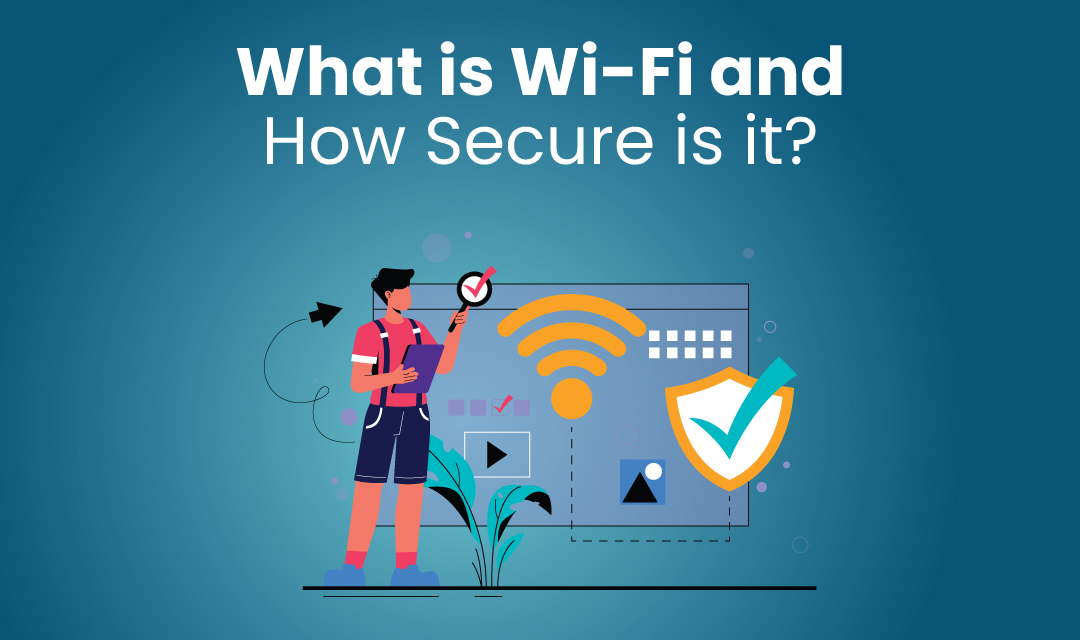
Wi-Fi, (or Wireless Fidelity) is a wireless LAN technology that allows Wi-Fi equipped computers to connect to the Internet from anywhere within the range of a base station. Wi-Fi encompasses a family of specifications within the IEEE 802.11 standard. These include 802.11b (the most popular, at 11Mbps, with a typical range of up to 300 feet), 802.11a (54Mbps, but at a shorter range), and 802.11g (combining the speed of "a" while keeping the range of "b").
Range varies in a Wi-Fi network depending on the type of Wi-Fi radio and antenna in use, and whether the network is in an open environment or in a building with lots of walls and furniture. With Wi-Fi technology, a gradual degradation in range occurs. This means that, instead of stopping altogether at a certain distance, your data transmission rate just becomes slower as you move farther away from the access point. For example, with Wi-Fi 802.11b technology, within 100 feet of the access point, the Wi-Fi radio in your laptop computer will get about 11 Mbps data rate. As you move farther away, that rate will drop down to 5 Mbps, then to 2 Mbps, and finally to 1 Mbps before it stops.
Wi-Fi networks have become more popular as prices for gateways/routers, access points, and PC cards drop, and more hotels, restaurants, and cafes set up wireless networks for public use. Wi-Fi networks are very convenient, and easy to use, but may carry security risks.
2. Security
If your network is insecure, neighbors and passers-by can steal sensitive data and even use your network to spread junk e-mails, viruses, and other mischief. However, there are several ways to enhance the security of your network.
- Enable Encryption. The first thing to do is to enable the WEP (Wired Equivalent Privacy) feature, a basic encryption technology that can prevent eavesdropping, on the wireless access point. You can also increase your security by periodically changing the encryption key
- Change your default password. Most wireless access points and gateways ship with a default password provided by the manufacturer By changing the default password, you prevent hackers (who can figure out the default password of typical access points and gateways) from entering your network
- Close your network. If the device you're using allows you to block the SSID (Service Set Identifier) from being broadcast, do it Different manufacturers ship with different SSIDs, but there are only a handful out there so it is easily guessed By turning the SSID off, you make it much harder for hackers to find your network
- Change your network name. Most access points ship with a default network name Change this name to something personal, yet hard for others to guess
Conclusion
This article provides a comprehensive overview of Wi-Fi technology, shedding light on its IEEE 802.11 standard variants and the dynamics of range in different environments. As Wi-Fi networks become increasingly prevalent in public spaces, the article highlights their convenience while cautioning about potential security vulnerabilities.
The article also offers practical tips to safeguard your Wi-Fi network, emphasizing the importance of encryption, password changes, SSID blocking, and personalized network names. By implementing these security measures, users can enhance the protection of their Wi-Fi networks, mitigating the risks associated with unauthorized access and data breaches. Whether you're a novice or an experienced user, this article serves as a valuable guide to understanding and securing your Wi-Fi experience.
By performing the steps described above and implementing security measures, such as MAC access control list, VPN, and simple OS level security, you can reasonably secure your wireless network. As with any network and computing devices, you cannot guard your resources perfectly but you can make it extremely difficult for hackers to enter your network.
Share this post
Leave a comment
All comments are moderated. Spammy and bot submitted comments are deleted. Please submit the comments that are helpful to others, and we'll approve your comments. A comment that includes outbound link will only be approved if the content is relevant to the topic, and has some value to our readers.

Comments (0)
No comment